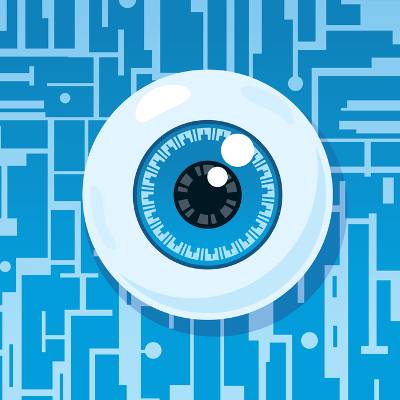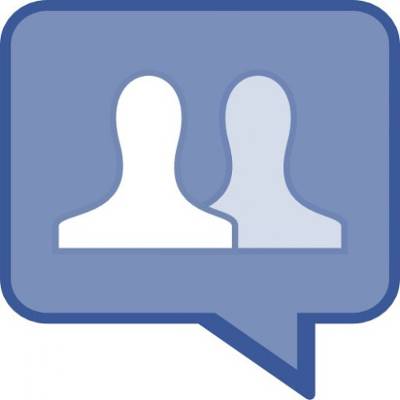Ferrum Technology Services Blog
 All of the recent vulnerabilities and bugs over the past few months, such as Heartbleed, GameOver Zeus, and the zero-day Internet Explorer vulnerability have many people thinking - just how strong is antivirus in the face of such threats? Symantec told The Wall Street Journal their opinion on the subject: Antivirus is "dead."
All of the recent vulnerabilities and bugs over the past few months, such as Heartbleed, GameOver Zeus, and the zero-day Internet Explorer vulnerability have many people thinking - just how strong is antivirus in the face of such threats? Symantec told The Wall Street Journal their opinion on the subject: Antivirus is "dead."
 Smartphone users routinely cycle out their old device for a new one every two years or so. When it's time to upgrade, many users see an opportunity to sell their old phone for extra cash. However, a device that's improperly wiped of its data could lead to identity theft if the data is recovered by the new owner.
Smartphone users routinely cycle out their old device for a new one every two years or so. When it's time to upgrade, many users see an opportunity to sell their old phone for extra cash. However, a device that's improperly wiped of its data could lead to identity theft if the data is recovered by the new owner.
 On Saturday, July 21st 2014, the Hackers on Planet Earth (HOPE) conference took place in New York City. It's a place where hackers discuss ways to improve the society in which we live. One of the more controversial panelists, Edward Snowden, has suggested hackers pool their efforts into creating anti-surveillance technology to decrease government espionage.
On Saturday, July 21st 2014, the Hackers on Planet Earth (HOPE) conference took place in New York City. It's a place where hackers discuss ways to improve the society in which we live. One of the more controversial panelists, Edward Snowden, has suggested hackers pool their efforts into creating anti-surveillance technology to decrease government espionage.
 Today's home has all sorts of conveniences when it comes to security and wireless devices, such as mobile-controlled security systems, temperature gauges, and light switches. These devices can also be connected to the Internet for ease of access. You think it's safe behind passwords, firewalls, and security applications, but you're wrong. Anything that's connected is at risk - even baby monitors.
Today's home has all sorts of conveniences when it comes to security and wireless devices, such as mobile-controlled security systems, temperature gauges, and light switches. These devices can also be connected to the Internet for ease of access. You think it's safe behind passwords, firewalls, and security applications, but you're wrong. Anything that's connected is at risk - even baby monitors.
 Just like the dark waters of the benthic ocean trenches, the Internet is filled with wondrous creatures that have never been seen before. However, there are also rather ugly things lurking in the depths as well. No matter how deep you swim, there are always the deep sea phishermen that will try to rip you away from everything you hold dear – your personal and professional data.
Just like the dark waters of the benthic ocean trenches, the Internet is filled with wondrous creatures that have never been seen before. However, there are also rather ugly things lurking in the depths as well. No matter how deep you swim, there are always the deep sea phishermen that will try to rip you away from everything you hold dear – your personal and professional data.
 The Heartbleed bug, one of the nastiest deficiencies in Internet security to date, was found last week. More than two-thirds of the Internet's secure information could have been leaked from websites utilizing the OpenSSL cryptographic library's encryption style. Most major websites have already issued a patch to resolve the problem, but that doesn't change the fact that this information has been available to anyone looking for it for over two years. Worse still is that you would have no idea how to tell whether your data has been compromised.
The Heartbleed bug, one of the nastiest deficiencies in Internet security to date, was found last week. More than two-thirds of the Internet's secure information could have been leaked from websites utilizing the OpenSSL cryptographic library's encryption style. Most major websites have already issued a patch to resolve the problem, but that doesn't change the fact that this information has been available to anyone looking for it for over two years. Worse still is that you would have no idea how to tell whether your data has been compromised.
 The same day that Microsoft ceased supporting Windows XP with security patches was also the day a vicious little monster was discovered – the Heartbleed bug, which renders privacy in the OpenSSL cryptographic library completely obsolete. Basically, anything utilizing the OpenSSL open source library is at risk here. Websites utilizing this form of encryption include Yahoo! Google, and Facebook. To put it in perspective, sites that utilize OpenSSL number more than two-thirds of the entire worldwide web. Though this bug only applies to versions 1.0.1 and 1.0.2 beta of OpenSSL, hackers are able to obtain private keys which can be used to obtain sensitive information from countless people all around the world. Nothing says "heartbreak" like having your identity stolen and your sensitive data Shanghaied.
The same day that Microsoft ceased supporting Windows XP with security patches was also the day a vicious little monster was discovered – the Heartbleed bug, which renders privacy in the OpenSSL cryptographic library completely obsolete. Basically, anything utilizing the OpenSSL open source library is at risk here. Websites utilizing this form of encryption include Yahoo! Google, and Facebook. To put it in perspective, sites that utilize OpenSSL number more than two-thirds of the entire worldwide web. Though this bug only applies to versions 1.0.1 and 1.0.2 beta of OpenSSL, hackers are able to obtain private keys which can be used to obtain sensitive information from countless people all around the world. Nothing says "heartbreak" like having your identity stolen and your sensitive data Shanghaied.
 The Internet has grown to such a vast size that it in itself is like a world within a world. Some people live on it, and share their secrets far too openly. These people think themselves safe in a world that technically doesn't exist, but there is a lot more danger involved with the Internet than some people realize. There are criminals everywhere, and they are just waiting for you to drop your guard long enough to swipe everything you've worked so hard to protect.
The Internet has grown to such a vast size that it in itself is like a world within a world. Some people live on it, and share their secrets far too openly. These people think themselves safe in a world that technically doesn't exist, but there is a lot more danger involved with the Internet than some people realize. There are criminals everywhere, and they are just waiting for you to drop your guard long enough to swipe everything you've worked so hard to protect.
 Details are still coming in regarding one of the biggest data breaches in history that compromised the personal records of 200 million Americans! The scam was propagated by the online ID theft service Superget.info, and it's currently being investigated by the U.S. Senate Committee on Commerce, Science, and Transportation.
Details are still coming in regarding one of the biggest data breaches in history that compromised the personal records of 200 million Americans! The scam was propagated by the online ID theft service Superget.info, and it's currently being investigated by the U.S. Senate Committee on Commerce, Science, and Transportation.
 In Sochi, Russia, the world's best athletes aren't the only ones having spent years preparing for the Winter Olympics. Russian hackers have also readied themselves for the world's arrival. Hackers have tapped every public WiFi network in the vicinity of the games. We can learn a thing or two about the WiFi problems in Sochi.
In Sochi, Russia, the world's best athletes aren't the only ones having spent years preparing for the Winter Olympics. Russian hackers have also readied themselves for the world's arrival. Hackers have tapped every public WiFi network in the vicinity of the games. We can learn a thing or two about the WiFi problems in Sochi.
 Due to the many different forms of digital communication, you may check your email less than ever before. However, just because you may not use your email account very often, it doesn't mean that a hacker will leave it alone. Every email account is full of valuable information and should be protected with the strongest security measures available.
Due to the many different forms of digital communication, you may check your email less than ever before. However, just because you may not use your email account very often, it doesn't mean that a hacker will leave it alone. Every email account is full of valuable information and should be protected with the strongest security measures available.
 Security company Trustwave made a discovery last week that sent the online world into a frenzy. They recovered two million stolen passwords from 93,000 different websites. This password cache included user accounts from major companies like Facebook, LinkedIn, Google, Twitter, and Yahoo. Is your password part of this haul?
Security company Trustwave made a discovery last week that sent the online world into a frenzy. They recovered two million stolen passwords from 93,000 different websites. This password cache included user accounts from major companies like Facebook, LinkedIn, Google, Twitter, and Yahoo. Is your password part of this haul?
 Last September, the Internet was introduced to CryptoLocker, a dangerous ransomware that has quickly spread and become one of the worst viruses we have seen. CryptoLocker will literally take your files hostage by encrypting them so it can force you to pay for the encryption key. A business hit with CryptoLocker will be locked out of their computers and unable to get work done.
Last September, the Internet was introduced to CryptoLocker, a dangerous ransomware that has quickly spread and become one of the worst viruses we have seen. CryptoLocker will literally take your files hostage by encrypting them so it can force you to pay for the encryption key. A business hit with CryptoLocker will be locked out of their computers and unable to get work done.
 It's a trap! As more people subscribe to social media networking sites, we can expect more scammers to weasel their way into our friend bases. Especially when using Facebook, you'll need to be on the look out for scammers. Here are some warning signs of fake Facebook friends to consider in order to keep your profile safe.
It's a trap! As more people subscribe to social media networking sites, we can expect more scammers to weasel their way into our friend bases. Especially when using Facebook, you'll need to be on the look out for scammers. Here are some warning signs of fake Facebook friends to consider in order to keep your profile safe.
 Your identity has quite a lot of value, especially in the wrong hands. Security firm ZoneAlarm put together some numbers in 2011 concerning identity fraud, and it even shocked us. Let's talk about a few of these statistics and what it means.
Your identity has quite a lot of value, especially in the wrong hands. Security firm ZoneAlarm put together some numbers in 2011 concerning identity fraud, and it even shocked us. Let's talk about a few of these statistics and what it means.


